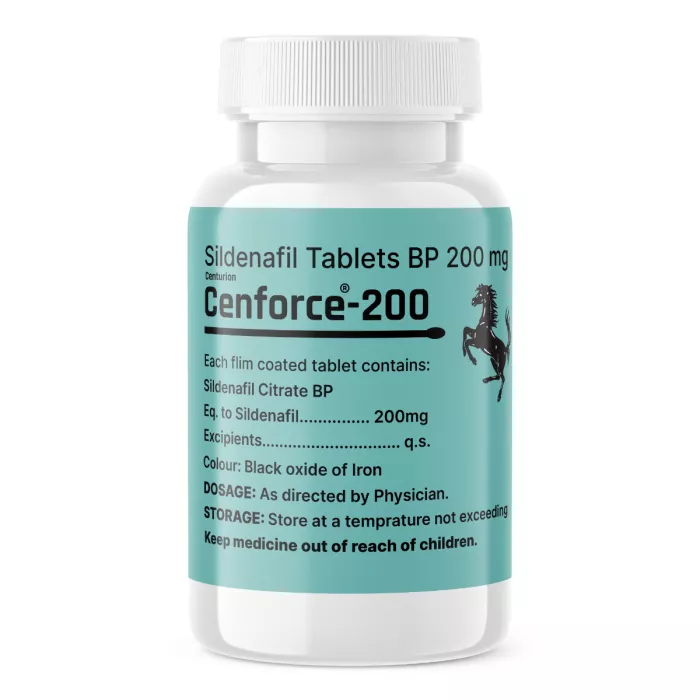There are moments when the intimacy does not feel natural and spontaneous. For many men, these changes could be due to stress, aging, or a bad day. However, when difficulties with erections become a recurring experience, they may reflect a deeper concern: Erectile Dysfunction (ED).
In the United States, over 30 million men are estimated to experience some degree of ED. Studies found that nearly 50% of men over 40 report occasional or persistent Erectile Dysfunction symptoms.
Instead of a fleeting inconvenience, the symptoms are a persistent inability to get or maintain an erection firm enough for satisfying sexual activity. Sometimes, the change is subtle as erections are less frequent, less firm, or do not last as long as before. For others, the shift is more abrupt, with a sudden inability to perform that can feel both confusing and isolating.
Identifying and addressing the issue early can restore sexual function. This article will highlight the signs to look out for, including subtle symptoms that can aid in prompt action.
What are the main symptoms of Erectile Dysfunction?
Erectile Dysfunction symptoms can appear in various ways and with different degrees of severity. The main symptoms include:
- Difficulty getting an erection: This doesn’t mean occasional difficulty in erections despite sexual arousal. The concern arises when you consistently struggle to get an erection during sexual activity, even when you feel mentally and physically ready.
- Trouble maintaining an erection: Even if you achieve an erection, you might find it challenging to keep it long enough for satisfying sexual activity. The erection may start strong but fade during foreplay or intercourse.
- Reduced erection firmness: Your erections might not be as hard or rigid as they once were. While you can still achieve an erection, it may feel softer or less firm than usual, making penetration difficult or uncomfortable.
- Inconsistent erection quality: Some men experience erections that work perfectly some days but fail on others. This inconsistency can be a sign of ED.
Save up to 90% on your medicine bills

Cenforce 200 mg

Kamagra Oral Jelly Rx 100 mg

Fildena 100 mg

Vidalista 60 mg
Early warning signs and symptoms of Erectile Dysfunction
Recognizing early warning signs helps you address ED before it becomes more severe. Many men dismiss these subtle symptoms, but they often indicate the beginning stages of Erectile Dysfunction.
Some early signs that you should watch out for include:
Decreased morning erections
Healthy men typically experience morning wood several times weekly. If you notice a significant decrease in morning erections, this could be an early sign of ED developing.
Reduced spontaneous erections
You might notice fewer random erections throughout the day. While this is partly normal with aging, a dramatic decrease, especially in younger men, can signal early ED.
Longer time to achieve an erection
If you find yourself needing more time and stimulation to achieve an erection compared to the past, this could indicate the early stages of Erectile Dysfunction.
Decreased sexual desire
While not always directly related to ED, a noticeable drop in sexual interest or libido can sometimes accompany early Erectile Dysfunction symptoms.
Symptoms of Erectile Dysfunction in different age groups
Erectile Dysfunction symptoms can vary significantly based on age, with different underlying causes and manifestations across age groups.
Erectile Dysfunction symptoms in young men
Young men with ED often experience symptoms related to Performance Anxiety, stress, or relationship issues. The erection difficulties may be situational, working fine during masturbation but failing during partnered sex.
The onset of ED in younger men often appears suddenly rather than gradually. It is frequently linked to specific stressful life events, relationship problems, or psychological factors. Symptoms in young men are often inconsistent, with periods of normal function alternating with episodes of difficulty.
Symptoms in middle-aged men
Men in their 40s and 50s often experience a gradual decrease in erection quality and consistency. The symptoms may develop slowly over months or years. Symptoms often result from a combination of emerging health conditions and psychological stress about sexual performance.
Symptoms in older men
Symptoms in older men typically worsen gradually over time, often correlating with other health conditions. Older men with ED frequently experience symptoms related to cardiovascular disease, Diabetes, or other chronic conditions alongside their erectile difficulties.
Rare Erectile Dysfunction symptoms
Different underlying causes of ED can produce distinct symptom patterns. Understanding these differences can help identify potential root causes.
Erectile Dysfunction nerve damage symptoms
Nerve damage Erectile Dysfunction (Neurogenic ED) can result from Diabetes, spinal cord injuries, or other neurological conditions. A study published by the Translational Andrology and Urology in 2016 indicates that Neurogenic Erectile Dysfunction (NED) is an increasingly common occurrence due to various disorders affecting nerve signal transmission.
Some of its distinct symptoms include:
- Sudden loss of erection ability
- Numbness or tingling in the genital area
- Reduced sensitivity during sexual activity
- Difficulty achieving orgasm
- Changes in ejaculation patterns
Other additional neurological signs that may accompany are:
- Numbness or tingling in hands or feet
- Difficulty with balance or coordination
- Muscle weakness
- Problems with bladder control
Vascular Erectile Dysfunction symptoms
Vascular ED occurs when blood flow to the penis is restricted or inadequate. This is the most common type of ED, especially in older men. A study published by Translational Andrology and Urology in 2020 shows that vascular Erectile Dysfunction is closely related to cardiovascular events.
Some of its primary symptoms include:
- Gradual onset of erection difficulties
- Erections that are softer than normal
- Difficulty maintaining erections throughout sexual activity
- Reduced response to sexual stimulation
- Cold extremities or poor circulation in the hands and feet
There are some other associated signs that may not directly affect erectile function but coexist. These include:
- Leg cramps during walking
- Reduced blood flow in feet
- Slow healing of cuts or wounds
- Fatigue during physical activity
Hormonal Erectile Dysfunction symptoms
Low Testosterone and other hormonal imbalances can cause specific ED symptoms.
Its additional characteristics are:
- Gradual decrease in sexual desire
- Difficulty achieving and maintaining erections
- Reduced muscle mass
- Increased fatigue
- Mood changes or Depression
Related hormonal signs that may not be ED-related but are often noticed with hormonal issues are:
- Decreased body hair growth
- Breast tissue enlargement
- Hot flashes
- Sleep disturbances
Psychological symptoms
Mental health indicators that may be responsible or point towards ED are:
- Persistent feelings of sadness or Depression
- Anxiety about sexual performance
- Relationship stress
- Loss of interest in activities
- Sleep disturbances
When to see a doctor
Knowing when to seek medical attention is crucial for the proper diagnosis and treatment of Erectile Dysfunction.
Immediate medical attention required
Emergency situations that should not be ignored include:
- Sudden, complete loss of erection ability
- Severe pain during erection
- Signs of infection (fever, discharge, severe pain)
Schedule an appointment soon
You should schedule a meeting with your doctor if you notice these important warning signs:
- Persistent ED symptoms lasting more than 2 months
- ED accompanied by chest pain or heart symptoms
- Erectile difficulties with Diabetes symptoms
- Depression or anxiety affecting daily life
- Relationship problems due to sexual difficulties
Routine medical consultation
Discuss with your doctor if you observe or have:
- Gradual worsening of erection quality
- Decreased sexual desire
- ED symptoms affecting quality of life
- Concerns about sexual performance
- Questions about normal sexual function
Conclusion
Recognizing Erectile Dysfunction symptoms early can lead to more effective treatment and significantly improve quality of life. While occasional difficulties with erections can be normal, persistent or worsening signs must not be ignored.
Signs like consistent difficulties in getting erections, maintaining them, or reduced firmness should be reported to the doctor immediately. Even if you notice reduced morning erections or changes in erectile function, see a doctor.
Remember that Erectile Dysfunction is a common, treatable condition. Many men experience these symptoms, and effective treatments are available. Don’t let embarrassment prevent you from seeking help.

FAQs
Can young men experience Erectile Dysfunction symptoms?
Yes, young men can experience ED symptoms, though they’re often related to psychological factors like stress, anxiety, or relationship issues rather than physical health problems. However, young men can also have physical causes, so it’s important to consult a healthcare provider.
How do female Erectile Dysfunction symptoms differ from male symptoms?
Females do not have Erectile Dysfunction. However, they do have u003ca href=u0022https://www.cheapmedicineshop.com/blog/sexual-wellness/what-is-sexual-dysfunction/u0022u003esexual dysfunctionu003c/au003e symptoms, including reduced genital blood flow, lack of vaginal lubrication, difficulty achieving arousal, reduced genital sensitivity, and painful intercourse. Women may also experience decreased sexual desire and difficulty reaching orgasm.
Can cycling cause Erectile Dysfunction symptoms?
Yes, prolonged cycling on a narrow saddle can compress nerves and even blood vessels in the pelvic area, potentially leading to temporary ED symptoms. Using a well-padded seat, adjusting your riding posture, and taking breaks help prevent this issue.
What other conditions have symptoms similar to Erectile Dysfunction?
Conditions like Peyronie’s disease (curved, painful erections), Low Testosterone (reduced desire and energy), and prostate problems (urinary symptoms with ED) can have overlapping symptoms. Proper medical evaluation helps distinguish between these conditions.
Can lifestyle changes reverse Erectile Dysfunction symptoms?
Yes, lifestyle changes may significantly improve ED symptoms. Regular exercise, quitting smoking, reducing alcohol, managing stress, and eating a heart-healthy diet can enhance blood flow and hormone balance, helping restore normal erectile function over time, especially in early or mild cases.
Cheap Medicine Shop only refers to credible, authoritative sources for our content. If you’re curious about how we ensure the integrity of our content, we encourage you to read our Content Information Policy.














